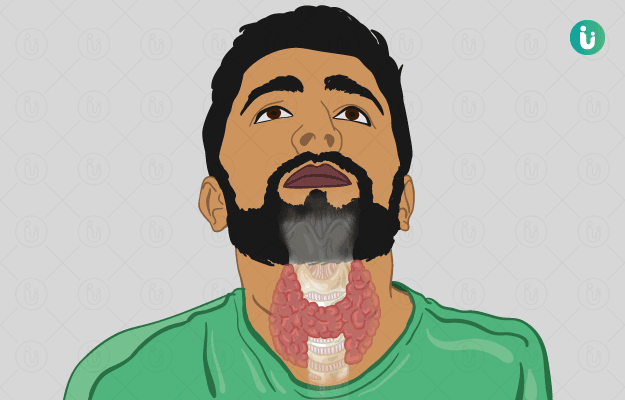Thyroid hormones are secreted by the thyroid gland, a small organ present in the region of the throat, and are responsible for maintaining homeostasis of the body. Any imbalance in the levels of these hormones can result in malfunctioning of various systems of the body. Thyroid disorders are very common, and women are affected more than men. The two major thyroid problems are hyperthyroidism and hypothyroidism. While hyperthyroidism is associated with excessive production of thyroid hormones, hypothyroidism refers to decreased production of these hormones. Thyroid cancer is yet another serious problem of the thyroid gland and is the commonest endocrine cancer in the world. The underlying causes of these problems are well established and can be detected by diagnostic tests. Prompt treatment can help in restoring the normal functioning of the thyroid gland. Lifestyle management includes the intake of a balanced diet with adequate iodine and the practice of yoga and meditation to combat stress. This along with regular check-ups and consultations with your endocrinologist can help in controlling thyroid problems.
What are thyroid problems?
Thyroid gland is an endocrine gland which produces two hormones, triiodothyronine (T3) and thyroxine (T4). The production and secretion of these hormones are regulated by thyroid-stimulating hormone (TSH) produced in the anterior pituitary, which is further enabled by the thyroid releasing hormone or TRH. These hormones are responsible for the basic metabolism of your body. Thyroid problems are caused when thyroid gland produces either excessive or insufficient hormones due to inappropriate stimulation. The causes for such problems can be autoimmune or could be due to the presence of cancerous or non-cancerous growths in the thyroid gland or the inflammation of the gland. Globally, thyroid problems are more seen in women than in men; nearly 5% women, as opposed to 0.5% of men, are affected by these problems. Every thyroid problem ultimately leads to excessive or reduced secretion of thyroid hormones, which affects almost every cell of the body. (1,2)

 Doctors for Thyroid Problems
Doctors for Thyroid Problems  OTC Medicines for Thyroid Problems
OTC Medicines for Thyroid Problems
 Thyroid Problems articles
Thyroid Problems articles

 Ayurvedic Treatment of Thyroid Problems
Ayurvedic Treatment of Thyroid Problems
 Home Remedies for Thyroid Problems
Home Remedies for Thyroid Problems
 Homeopathic Treatment of Thyroid Problems
Homeopathic Treatment of Thyroid Problems
 Yoga for Thyroid Problems
Yoga for Thyroid Problems

































 Editorial Team
Editorial Team
















